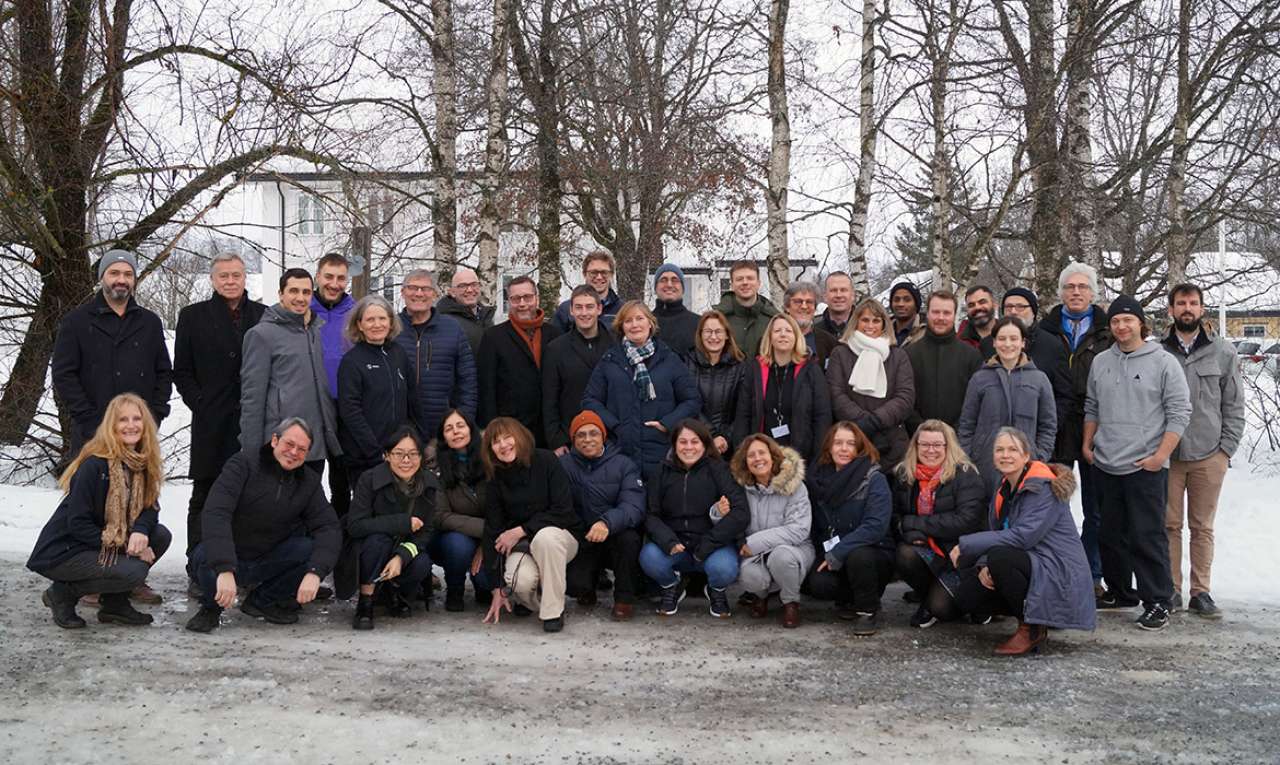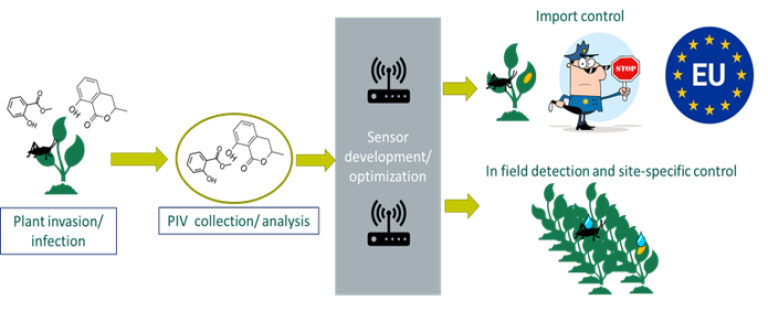Division of Biotechnology and Plant Health
Plant Pest prevention through technology-guided monitoring and site-specific control

End: dec 2026
Start: jan 2023
One of the ambitious goals of the Farm2Fork strategy is to reduce the use of pesticides in the EU by 50%. The expected increase in plant pests due to climate change, international trade and the intensification of food production systems offsets this target.
More information
Podcast - Sniffing out plant pestsProject participants
Birgitte Henriksen Dalphy Ondine Camira Harteveld Martin Pettersson Gunda Thöming Volkmar Timmermann Venche Talgø Solveig Haukeland Marta Bosque Fajardo Charles Kwadha
Illustration of the PurPest concept
| Status | Active |
| External project link | PurPest website |
| Start - end date | 01.01.2023 - 31.12.2026 |
| Project manager | Andrea Ficke |
| Division | Division of Biotechnology and Plant Health |
| Department | Fungal Plant Pathology in Forestry, Agriculture and Horticulture |
| Total budget | Total: €8 414 940, For NIBIO: €1 072 588 |
| Funding source | EU program Horizon Europe, Call: HORIZON-CL6-2021-FARM2FORK-01, National research councils from UK and Switzerland |
PurPest aims to control serious plant pests during import and manage pests in the field by developing a unique concept enabling pest detection in a timely and non-invasive manner. The PurPest concept will exploit the specific volatiles released by pests or by pest infested plants to develop a sensor system protype (SSP) that detects the presence of these pests during plant import and to monitor pests already present in European farmers fields. Implementation of the PurPest concept is expected to drastically decrease the risk of new pest invasions into Europe and optimize pesticide use, where and when necessary. Additionally, the PurPest concept used in nurseries to detect serious pests will significantly reduce the distribution of pest infested plant material from exporting to importing countries and their further spread within these countries. PurPest will involve all stakeholders along the value chain in a multi-actor approach to promote this concept, including plant health officers, nursery representatives and forest organizations.
PurPest is focusing on five diverse pests in forestry, horticulture and agriculture; the forestry pathogen causing Sudden Oak Death, Phytophthora ramorum, the causal agent of Pine Wilt Disease, Bursaphelenchus xylophilus, the Cotton Bollworm, Helicoverpa armigera, the Brown Marmorated Stinkbug, Halyomorpha halys and the EU A1 listed Fall Armyworm, Spodoptera frugiperda. Current detection technology is being optimized and implemented in the SSP. Using this detection tool to screen plants and wood-based packaging material during import will allow us to detect incoming pests, destroy any infected material and prevent the target pests from entering EU and associated countries. These actions will be supported by developing policy recommendations in collaboration with the industry stakeholders, the plant pest scientists and legislators from the National plant protection organizations to ensure feasibility, economic and ecologic benefits and high efficiency of this screening method. The detection concept developed, validated and demonstrated in PurPest, and supported by appropriated policy recommendation, is therefore an effective response to EU quarantine and other serious plant pests threatening Europeans agriculture, horticulture and forest industry.
